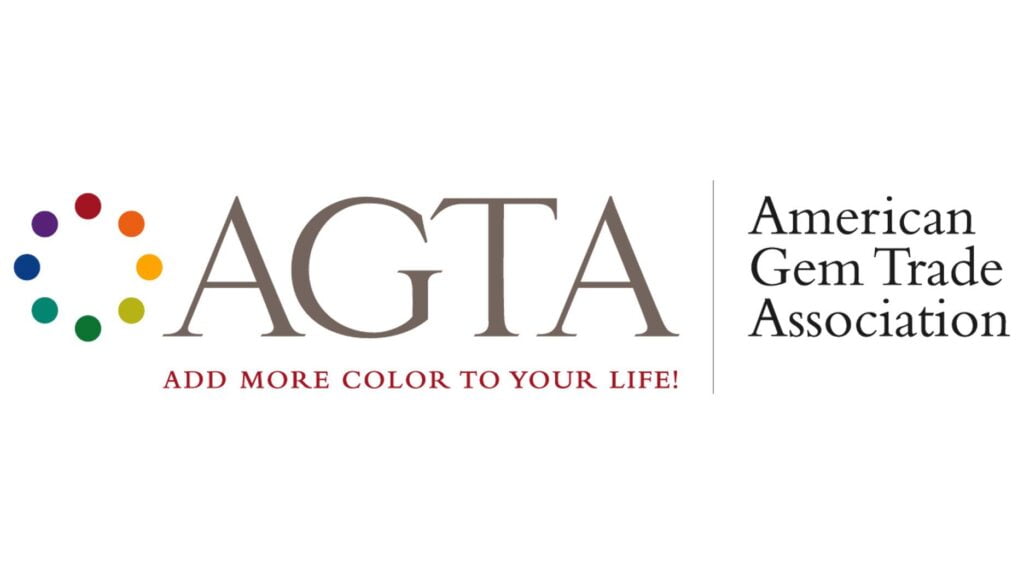In a bid to uphold the value of natural gems and avoid any potential market confusion, the American Gem Trade Association (AGTA) has made a significant decision to ban lab-grown diamonds and gemstones at all its future shows, starting from the GemFair Tucson 2025. Notwithstanding, the newly implemented rule permits members to sell such synthetic stones off the show floor, provided there is complete buyer disclosure. Interestingly, this pivotal move is unlikely to impact numerous exhibitors since only two out of 260 listed sellers retailed synthetic gemstones at the 2024 AGTA GemFair Tucson. AGTA holds a staunch belief in the exclusive value and rarity of natural gemstones, emphasizing that visitors to an AGTA show are essentially seeking gems naturally mined from the earth. Furthermore, AGTA draws a clear line between synthetic gems and actual “minerals”, a term reserved for natural gems per definitions from both the British Geological Survey and the U.S. Geological Survey.
1. Understanding AGTA’s New Policy
Background about AGTA
The American Gem Trade Association (AGTA) has long served as a prominent platform in the world of gemstone and jewelry trading. Formed to uphold the highest ethical standards among its members and the wider industry, AGTA has a longstanding reputation for its commitment to quality, authenticity, and the preservation of natural gems’ inherent value.
A recent policy change of AGTA banning lab-grown diamonds
Recently, a major development within the AGTA has raised eyebrows and caught industry-wide attention. The association has declared an outright ban on lab-grown diamonds and gemstones at all its shows, starting from the GemFair Tucson 2025. This decision marks a significant shift in policy for the association, reflecting the ongoing debate over natural versus lab-grown gemstones.
Reasons behind the ban
The primary objective behind this ban is to eliminate any potential confusion that may arise in the market. With the lab-grown diamond industry on a steady rise, AGTA perceives an inherent risk. The fear is that without careful regulation, consumers might be misled about the nature and origin of the gems they’re purchasing.
Exceptions to the new policy
However, keep in mind that this isn’t an absolute demolition of lab-grown gemstones within AGTA’s jurisdiction. The association has clarified that members can continue selling these stones, provided they are not openly displayed on the show floor and are accurately disclosed to the buyers.
2. The Impact on AGTA Shows
Specific impact on GemFair Tucson 2025
In particular, the ban’s implementation at GemFair Tucson 2025 will serve as a litmus test for the policy. It’s expected that the absence of lab-grown gems would permit the showcasing of natural gems in a more focused manner, thus enhancing their appeal and market value.
Anticipated effects on the overall vibe of the show
This policy change is bound to alter the overall vibe of the shows. Attendees and exhibitors could experience enhanced clarity in their pursuit of beautiful, naturally occurring gemstones without any distractions.
Predicted reactions from attendees and exhibitors
As for reactions among attendees and exhibitors, responses might vary. Natural gemstone enthusiasts might appreciate the restriction, while supporters of lab-grown gems may argue against the policy. This polarity, however, is one that AGTA clearly anticipated, and believes necessary for preserving the sanctity of natural gemstones.

3. Differences between Natural and Lab-Grown Gems
Distinctive features of natural gems
Natural gems are formed over eons beneath the earth through various geological processes. Each gem bears a unique set of characteristics and anomalies, offering it a distinctive radiance and vibrancy.
The process of creating lab-grown gems
On the contrary, lab-grown gems are created within a controlled environment using advanced scientific techniques. While they may imitate the physical characteristics and chemical compositions of their natural counterparts, they lack the unique imperfections that time and nature impart on actual gems.
Comparisons between natural and synthetic gemstones
In a comparison of the two, while synthetic gemstones can mimic the appearance and structure of natural gems quite closely, they cannot replicate the rarity and inherent antiquity that come with natural ones.
4. The Value Inherent to Natural Gemstones
Industry insights on the value of natural gems
From an industry perspective, natural gemstones are prized for their rare and sometimes inimitable characteristics. Their timeless appeal and inherent value have made them a perennial favorite among collectors, jewelers, and consumers alike.
Opinions by AGTA concerning the value of natural gems
AGTA has always emphasized the worth of natural gems. According to AGTA standards, when buyers attend an AGTA show, they expect to shop for mined natural gems–singular, captivating, and ethereal artifacts of the earth.
Perceived differences in value between natural and lab-grown gems within the market
Perceived value also significantly varies between natural and lab-grown gems. Irrespective of how closely lab-grown diamonds might resemble natural ones, consumers often show a strong preference for the authenticity, romanticism, and lore that surround natural gemstones.

5. Transparency and Disclosing Synthetic Gems
The importance of transparency in gemstone sales
Transparency is crucial in gemstone sales. With the growing capability of businesses to create synthetic gems that closely resemble natural ones, it’s more crucial than ever for traders to provide thorough and accurate information to their buyers.
AGTA regulations regarding disclosure of synthetic gems to buyers
AGTA maintains stringent regulations regarding synthetic gemstone disclosure. The association insists on full clarity with prospective buyers, ensuring they are well informed about the nature and origin of the gems they’re purchasing.
The position of AGTA members on disclosure
AGTA members are expected to uphold these disclosure rules. By adhering to the highest ethical standards and practices, they maintain trust within the business community and with consumers.
6. Defining Synthetic Gems as Non-minerals
Definition of minerals according to British Geological Survey and U.S. Geological Survey
The British Geological Survey and the U.S. Geological Survey define minerals as natural substances. This classification inherently excludes lab-grown gems from being considered ‘minerals’.
Reasons why synthetic gems are not considered minerals
Synthetic gemstones are grown in a laboratory environment, according to specific scientific procedures. Since they are not formed in nature, they do not meet the ‘natural’ criterion of the mineral definition.
Potential implications of this classification
This classification could serve as a stepping stone for promoting natural gems and preserving their unique appeal. By categorizing synthetic gems as non-minerals, it further demarcates the line between naturally occurring and lab-grown gems.

7. The Growing Lab-Grown Diamond and Gemstone Industry
Current trends in the lab-grown diamond industry
Despite AGTA’s ban and the enduring allure of natural gems, the lab-grown diamond industry continues to grow. Technological advancements are enabling the production of larger and better-quality synthetic gemstones, broadening consumer choice.
Pros and cons of lab-grown gems
Lab-grown gems offer certain benefits such as a lower price point, environmental sustainability, and an assurance of ethical sourcing. However, they lack the uniqueness and natural allure that come with genuine gems.
Potential reasons for the growth in popularity of synthetic gemstones
The surge in popularity of synthetic gemstones can be attributed to their affordability, uniformity, and ethical origin, which appeal to a segment of consumers. These are factors that the natural gemstone industry must competently address to continue commanding its preeminent position.
8. Impact on Exhibitors
Estimated number of affected exhibitors
Interestingly, this policy change may not significantly impact the majority of exhibitors. At the 2024 AGTA GemFair Tucson, there were only two exhibitors listed as synthetic gemstone sellers out of a total of 260.
How the ban could affect business for synthetic gem sellers
These sellers, however, could potentially face business impacts due to the ban. With the use of their products limited within AGTA shows, they may need to explore alternative platforms to showcase and sell their product ranges.
Reactions from exhibitors selling synthetic gems
Exhibitors specializing in synthetic gems likely have mixed feelings toward the ban. While some may consider this a setback, others might view it as an impetus to innovate and find new ways to present their offerings in the market.

9. Consumer’s Response to the Ban
Surveyed preferences of consumers towards natural vs lab-grown gems
Previous surveys have demonstrated consumers ’preference for natural gems. Notwithstanding the lower prices and ethical sources of synthetic gems, buyers still appear to hold natural gems in higher esteem.
Potential changes in buyer behavior due to the ban
This ban might further reinforce consumers’ perception of the superiority of natural gems. It could potentially encourage a shift in buyer behavior, leading to a greater demand for natural gemstones.
How consumer beliefs about the superiority of natural gems could be reinforced by the ban
The enforced absence of lab-grown gemstones at shows could consolidate consumer beliefs around the superiority of natural gems. It reinforces the notion that natural gems offer an exclusive, unique, and dignified form of luxury that cannot be recreated.
10. Potential Future Implications of the Ban
Predictions regarding the future of lab-grown gemstones
While AGTA’s ban might momentarily dampen the lab-grown gemstone industry, it doesn’t necessarily spell its demise. The industry’s future will be influenced by advancements in synthetic gemstone production, consumer preferences, and ethical and environmental considerations.
Potential impacts of ban on other gemstone trade associations
This ban could sow the seeds for similar policy changes in other gemstone trade associations. AGTA’s decision could invoke wider conversations within this realm, potentially leading to shifts in industry norms and practices.
Considerations on the long-term effects of the ban on the overall gemstone industry
In conclusion, it is yet to be seen how this ban will reshape the overall gemstone industry. It will depend on various factors such as consumer sentiments, industry responses, and the evolving dynamics between the natural and synthetic gemstone markets. Nonetheless, this bold step by AGTA has amplified the conversation around authenticity, value, and the enduring appeal of all things natural.

